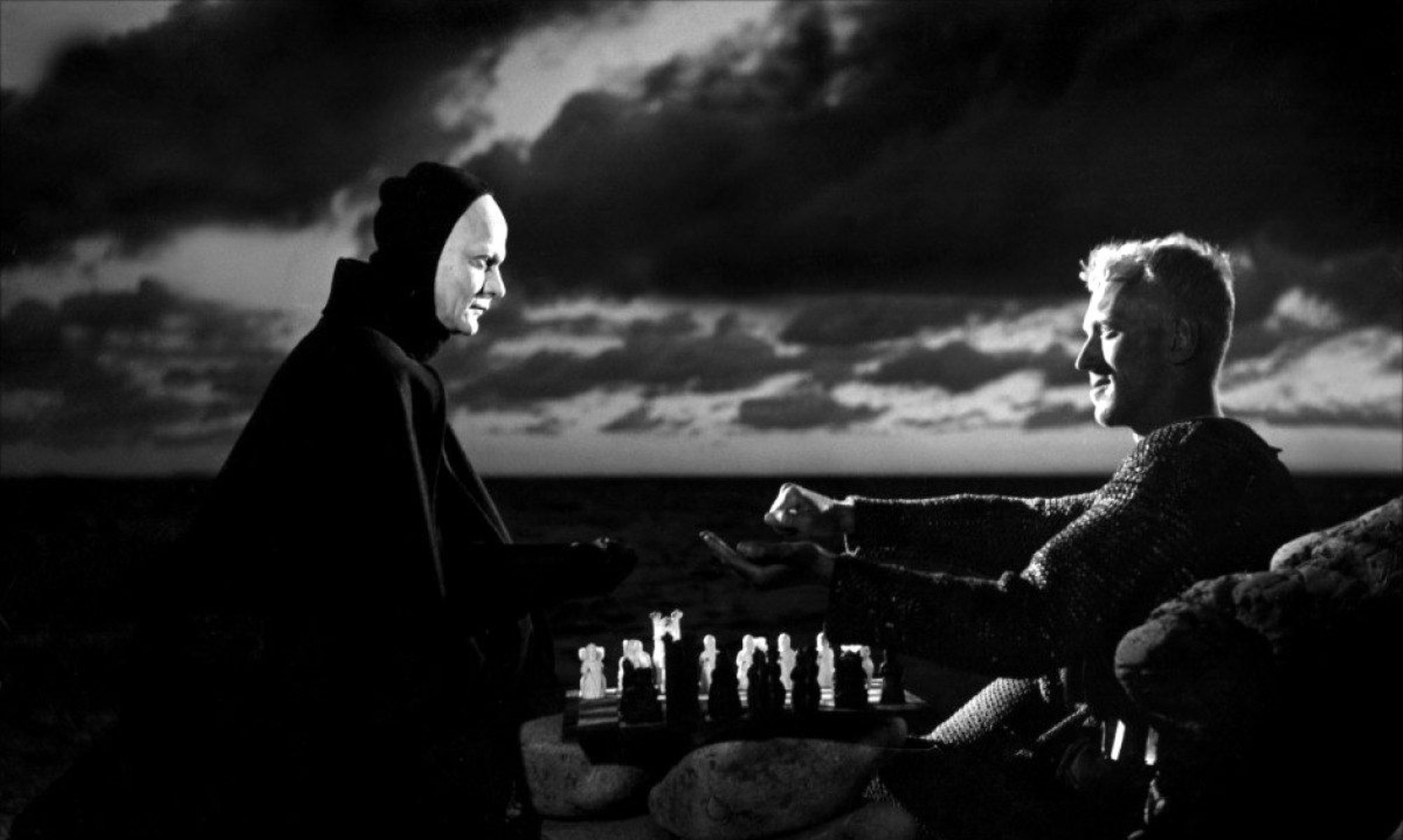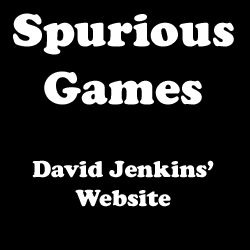Reviews and comments
Reviews of Spurious Games are beginning to come in and my intention is to add a selection from time to time. The hope is that it will eventully become substantial and contribute to the goal of this domain, which is to give a rounded account of the novel and its context.
Comments received so far are offered below:
———————————————————————————————-
‘Brilliant crime thriller with a clever chess theme.’
Julian Friedmann
———————————————————————————————-
‘A book like no other I have read. Is it an academic paper masquerading as a novel, a chess-themed whodunnit, or an absurdist’s eye-view of an absurd world?”
David Wheatcroft
———————————————————————————————
‘Spurious Games is funny, clever and beautifully produced with some fine art. Jenkins has a strong academic and intellectual hinterland and a wickedly good imagination.’
Ben Graff in Chess Circle
———————————————————————————————
“We will all recognise the calm, quirky and nutcase chess players from our own clubs.”
Geoff Chandler, English Chess Forum
———————————————————————————————-
“Spurious Games displays faint echoes of Nabokov, Umberto Eco, even Spike Milligan’s Puckoon, but really Jenkins’ eccentric genius is unique.”
Multiple award-winning film and television script writer Andrew Davies
———————————————————————————————-
“Very entertaining, and with so many references that reflect my own cultural journey: the sound track of my life.”
George Black, classical jazz musician
———————————————————————————————-
“There is a fascinating and at times bizarre mixture of ingredients. Spurious Games attempts for the detective novel what celebrity chef Heston Blumenthal did for cordon bleu cooking.”
Leslie Hutchison, ex Movement Director, Royal Shakespeare Company
———————————————————————————————-
“Seriously entertaining. Authenticity is a great topic for exploration (‘All that glitters …’), but why bury it in a whodunnit? The wide-ranging cruise of Spurious Games docks at many exotic ports, but I was too busy looking for Detective Inspector John Logan’s checkmate. Would readers think it a spoiler alert if I flag this fiction as faux, deceit, phantasmagoria, even rip-off? In the guise of murder mystery, David Jenkins has put the spotlight relentlessly on validity, spoof, falsification and artificiality—all while entertaining us with the narratives of a Cornish police force.
I quite liked the ambiguous ending and don’t want clever clogs readers to solve it for me and tidy up the mess.”
Professor Robert Stake
CIRE, University of Illinois
———————————————————————————————-
“David Jenkins’ whodunnit first novel Spurious Games describes itself as a Schachnovelle – a chess-tale. But don’t be turned off because you know nothing about the game beyond avoiding Fool’s Mate. No one ever claimed Dorothy Sayers’ brilliant The Nine Tailors could only be understood by bell-ringers. Don’t shy away just because you wouldn’t know a Russian grand-master from the owner of Chelsea football club. There were doubtless many references, jokes and homages I didn’t get but it didn’t stop me having a thoroughly entertaining read. (I read in this morning’s paper that Tarantino’s films have ‘quotations’ in them from Howard Hawks’ western Rio Bravo – more allusions I missed – but failure to spot them hasn’t stopped me enjoying Tarantino.)
The plot is a mixture of standard multi-murder whodunnit a la Cornwell and a shaggy-dog story told by Eddie Izzard. A series of murders, one more bizarre than the next, decimates the membership of “the off-piste world of Cornish chess” (of which Jenkins is a member). But the plods of Poldark-land are on the case…or at least some of them are. These include lead-sleuth DI John Logos, assisted in this case by Caradoc Pritchard, Professor of Psychology and Plagiarism at the University of Aberaeron and the local bungling bobby Superintendent Polgooth.
As with many catch-the-criminal tales – from whodunnits, whydunnits and howdunnits to the Colombo/Kojack track- trick-and-trap routine – the key to success is establishing a thoroughly believable, sometimes loveable detective or detective and assistant. The central problem for this author – not entirely successfully solved – is how to create this strong central cast while maintaining what the publisher’s blurb calls “a satirical tone”. That tone, often amusing and pointed if a little scattergun, has the drawback of preventing the empathy we feel for the traditional detective character to develop; it also tends to undermine the sense of claustrophobic suspense that give structure to whodunnits.
Jenkins’s desire to skewer the absurd – from interplanetary conspiracy theories to religious cults – is well-placed and often very funny, but I would like these to have been invested with more menace. Indeed, the week after I read this book the media was awash with stories about the QAnon movement – bizarre, laughable…but menacing. Umberto Eco’s Foucault’s Pendulum manages to marry the bizarre of the occult with menace.
While our best-known whodunit writers impose a claustrophic mood on proceedings, Jenkins has a more Rabelaisian approach, feeding the reader with wildly improbable scenarios: don’t just order an icecream, put a chocolate flake in it, then add strawberry sauce and then some hundreds and thousands… Nothing succeeds like excess…
Notwithstanding the murders, the Mechizedek cult of Spurious Games is treated with too much derision to seem threatening. The author is obviously a lover of spoofs. And one of the delights of the book is to sort out the spoofs from the truths (followers of Radio 4’s “The Unbelievable Truth” will love this!) Indeed, Caradoc Pritchard (Jenkins?), we are told, applied to be the chess correspondent of psychologist Glenn Ellenbogen’s “piss-taking Journal of Polymorphous Perversity”. Spoof or truth? A star of the Cornish chess world is called Bobby Cluedo. Spoof or truth? Or both? Fake facts, half-truths and fantasy – let the reader sort it out.
Like all true whodunnits the author games the reader. Clues appear but go unnoticed, the salient turns out to be irrelevant, there are bluffs and feints, patterns appear only to be dissolved by subsequent action which require new hypotheses.
This is a richly rewarding read, funny, spikey and bewildering.”
Andrew Hornung
———————————————————————————————-
“Unusually well written in a fluent and amusing style, Spurious Games is many sided: an affectionate satire on Cornwall Chess; a murder mystery in which the detectives are taunted with chess-related clues; and a critique of some unhinged aspects of contemporary culture, particularly focussed around End-of-Days belief systems. The eccentric cast of characters is recognisably based to some extent on real people although fictionalised, to the extent that one or two were a little miffed. But not me. What you need to know is that I appear in splendid form from page 41, which has given me considerable local celebrity. A source of potential bias? I don’t think so. You will love this brilliant and clever novel too.”
Jummy Speaking
———————————————————————————————–
“The thing that stood out for me about Spurious Games is the sheer number of topics discussed, ranging widely, as the cover puts it, ‘across pop culture, magic shows and fortune telling, cyber espionage, pro-sex feminism, doppelgangers, the inanities of New Age spirituality, and whether the game of chess constitutes a mental health hazard.’ Quite a menu! It certainly keeps you on your toes. The novel uses chess games to advance the plot, but the annotation is more than sufficient for a non-chess player to understand the point behind the games in terms of the story.
I feel very honored that a character in Spurious Games is clearly based on me, especially since I haven’t lived in Cornwall since 2015, although I cannot recall ever being a murder suspect. Funnily enough, the last game I played before leaving Cornwall for the States was against the author in the Bude club, and after the game he interviewed me and my Dad the day before we moved to America. The interview was published on the Chess Cornwall website and anybody interested in literary archaeology can compare it with the account in the novel of Constable Peter Speed interviewing my alter ego Barnaby Bude.”
Theo Slade, National Chess Master, Florida USA
———————————————————————————————-

